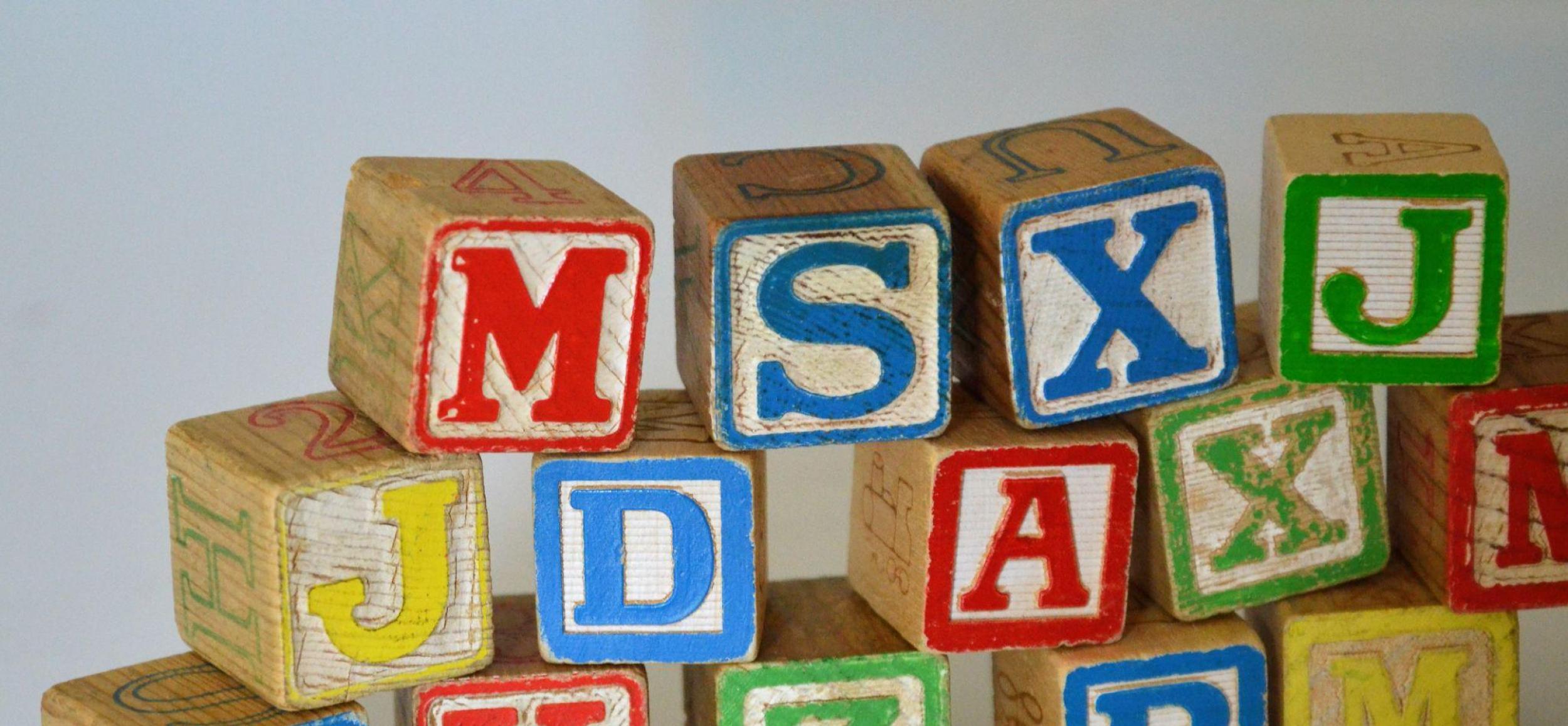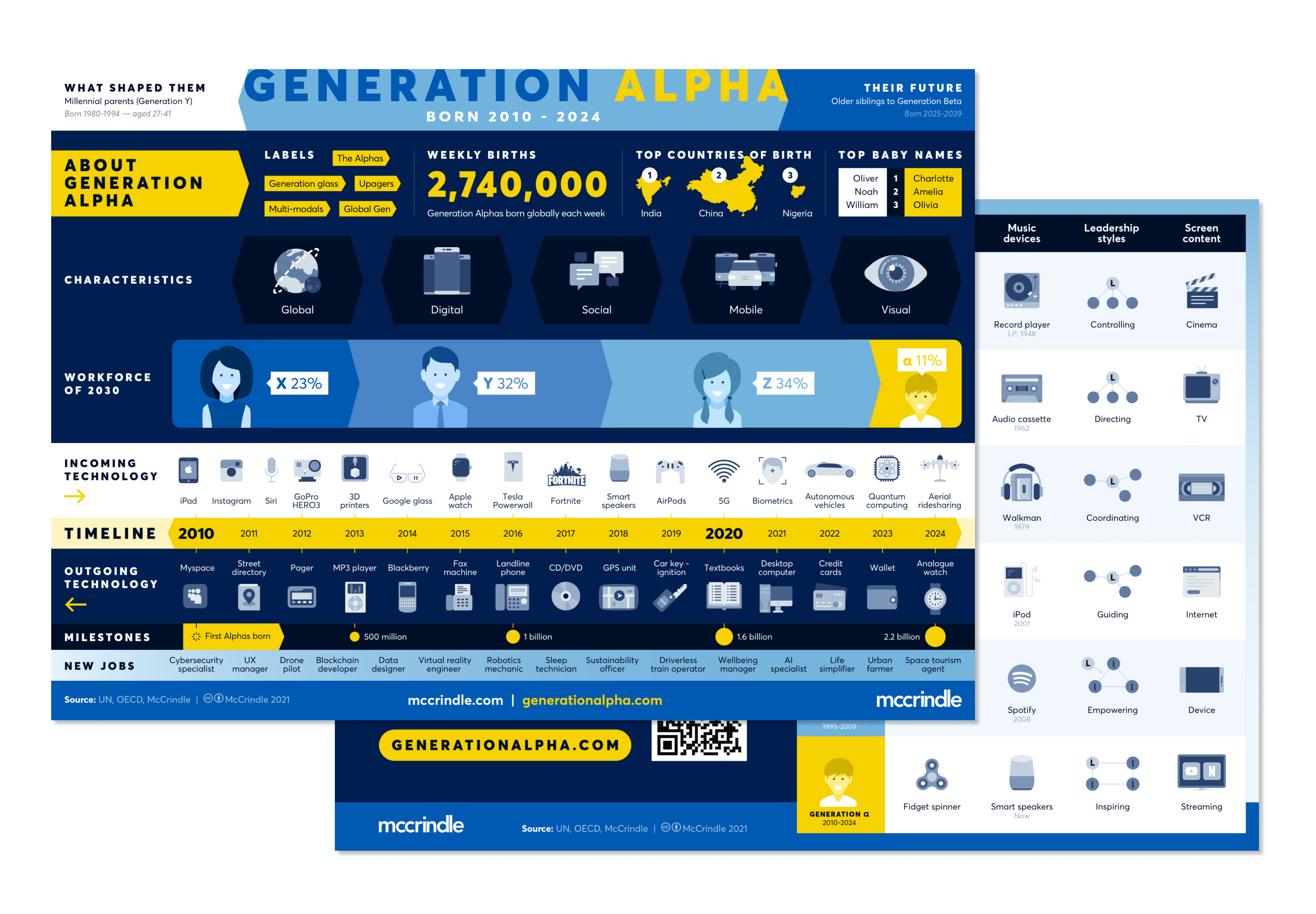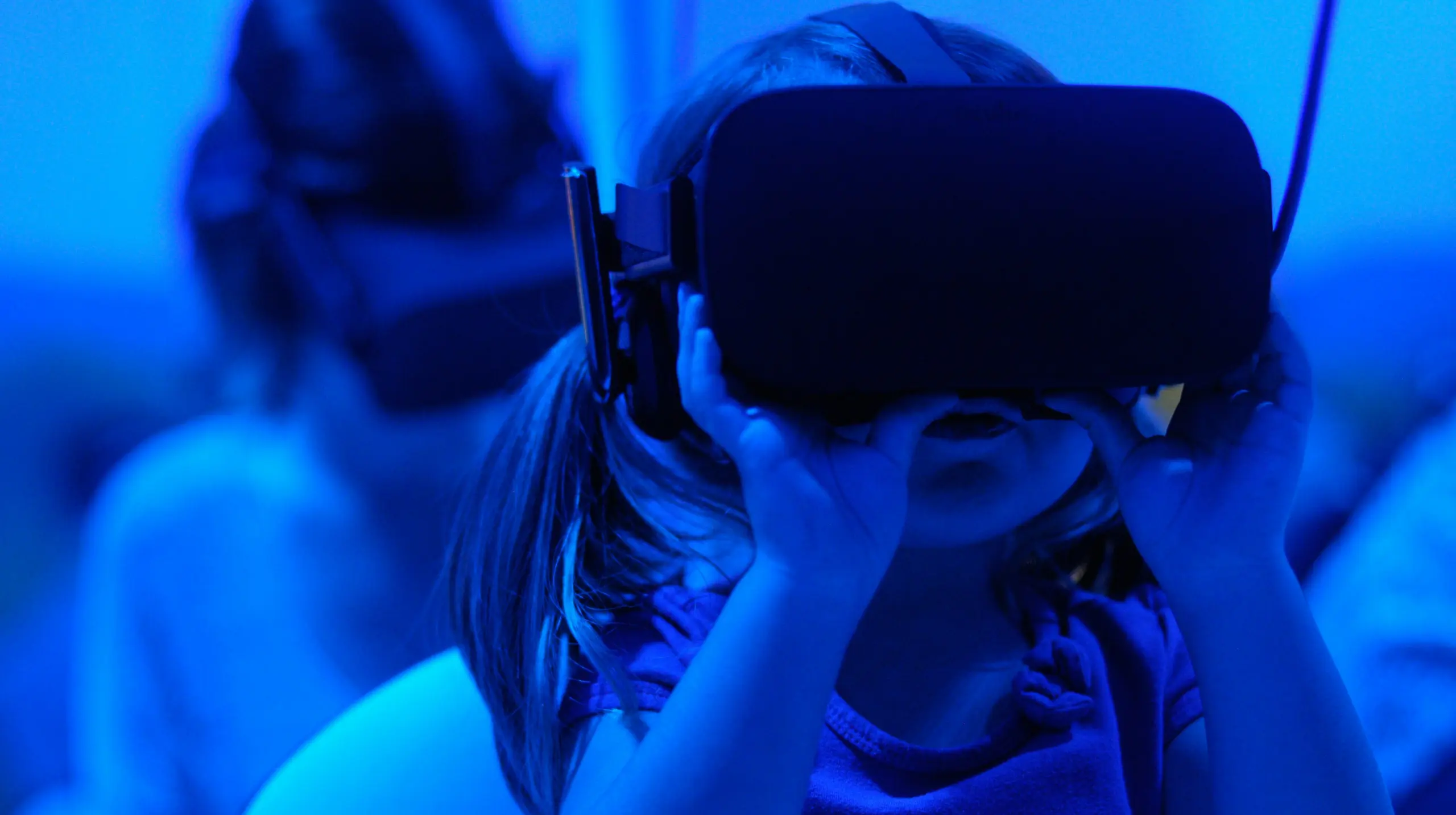Generation Alpha
Why we named them Gen Alpha

Generation Alpha describes the current generation of children who began being born in the year 2010. They are the children of the Millennials, and often the younger siblings of Generation Z. There are more than 2.8 million born globally every week. When they have all been born (2025) they will number almost 2 billion – the largest generation in the history of the world.
Naming the next generation
In the USA during the 2005 Atlantic hurricane season, the alphabetical list of names was exhausted, so scientists looked to the Greek alphabet for names. This nomenclature of moving to the Greek alphabet after exhausting the Latin one has a long history with meteorologists. Scientists of all disciplines use the Greek alphabet as a labelling sequence and as sociologists in naming the next generation we have followed this nomenclature too.
While many people are still gaining an understanding of Generation Y and educational academics are beginning to focus on Generation Z. In Australia alone there are almost two million children born since the end years of Generation Z (1995-2009). With generational analysis having moved from a stage of foundation to consolidation, a more predictable labelling system is being formed. Globally there is consensus on the alphabetised theme of Generations X, Y and Z, but for this latest generation, it is not the end of the old or a recycling of the current but the start of something new.
Generations Y and Z are often referred to as 21st-century generations. However, this upcoming generation is truly the first millennial generation because they are the first to be born into the 21st century (while many Zeds have been born into the 2000s, its oldest members were born at the tale end of the 20th century).
In our survey on the generations we asked respondents what they thought the generation after Z might be called. For many, the logical answer to our question was ‘go back to the beginning’. Generation A was suggested by 25 per cent of our respondents.
Alternatives to Generation Alpha
The respondents who suggested Generation A said the labels also signified what we can expect of this generation and their times: a new and positive beginning for all, with global warming and terrorism controlled. Respondents who suggested the following labels made similar comments: the Regeneration, Generation Hope, Generation New Age, the Saviours, Generation Y-not and the New Generation. Others suggested the label ‘the Neo-Conservatives’ because the upcoming generation will have grown up aware of their impact on the environment and the economy.
Some respondents suggested the label ‘the Millennium Generation’, perhaps appropriate given the fact that this next generation will be the first to have been born into the 21st century. However, this label will probably never be adopted; after all, both Generations Y and Z have already been referred to as the Millennials by demographers, writers, commentators and bloggers—particularly those in the US.
Other suggested labels were reflective of our tech-centric age. Many of these labels have also been used to refer to Generations Y and Z and again for this reason probably won’t be taken up: Net Generation, the Onliners, Global Generation, Generation Tech, Generation Surf and the Technos.
Those born globally from 2010-2024 we have labelled as Generation Alpha. If we look at Strauss and Howe’s generational theory, the next generation is predicted to spend its childhood during a high. We are currently living through the crisis period of terrorism, the global recession and climate change. By the time Generation Alpha are all born and moving through their formative years, these threats, among others, may have subsided. If that happens then this generation will begin their lives at a new stage, a global generation beginning in a new reality.






